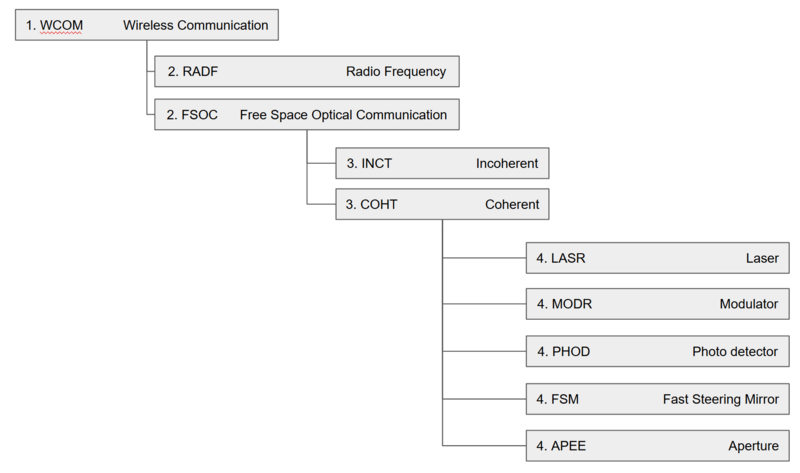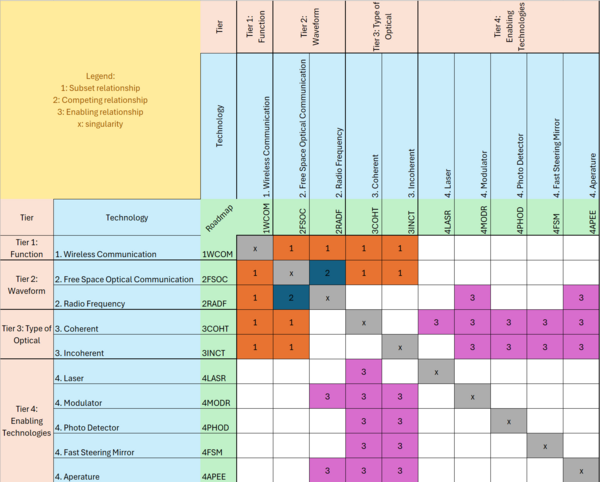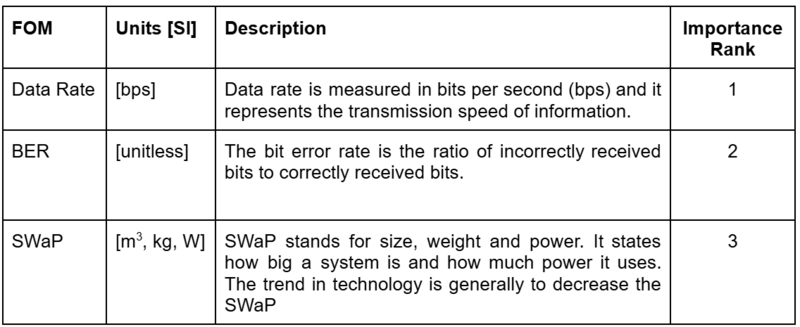Difference between revisions of "FSOC"
(Fixed formatting and added introductions to subsections) |
|||
| Line 13: | Line 13: | ||
===DSM Matrix=== | ===DSM Matrix=== | ||
This DSM | This DSM shows the relationships between FSOC and the most important technology roadmaps that are broader, competing, and enabling to FSOC. | ||
[[File:FSOCdsm.png|600px|thumb|center|FSOC Roadmap DSM]] | [[File:FSOCdsm.png|600px|thumb|center|FSOC Roadmap DSM]] | ||
Revision as of 17:16, 10 October 2024
Welcome to the Free-Space Optical Communications Technology Roadmap.
- Technology Roadmap Identified as FSOC - Free-Space Optical Communications
- This indicates a Level 2 Individual-Technology Level Roadmap. This page describes the functions, uses, history, present, and future development of Free Space Optical Communication.
Roadmap Overview
Free-space optical communication (FSOC) utilizes optical carriers in the visible and infrared (IR) spectrum to transmit information wirelessly. This combined spectrum is 2,000 times larger than that used in RF technologies. The narrow beam of the optical signal, along with FSOC's point-to-point architecture, enables energy-efficient and secure communication links. As 6G networks demand advancements in data rates, channel capacity, power efficiency, and low latency, FSOC emerges as a promising solution. This roadmap explores the implementation of coherent FSOC for next-generation wireless communications.
Design Structure Matrix (DSM) Allocation
DSM Tree
This DSM tree was constructed for the FSOC technology in the context of larger wireless communication technologies.
DSM Matrix
This DSM shows the relationships between FSOC and the most important technology roadmaps that are broader, competing, and enabling to FSOC.
Roadmap Model Using OPM
We use OPD to create a model of the FSOC technology, including its attributes, and the relevant processes that compose it.
Roadmap Figures of Merit
Key FOMs
This table shows the key figures of merit used to quantify the progress of this technology over time.



